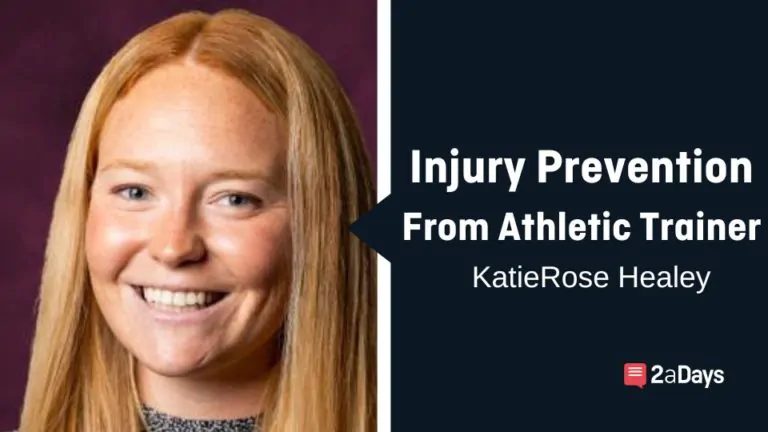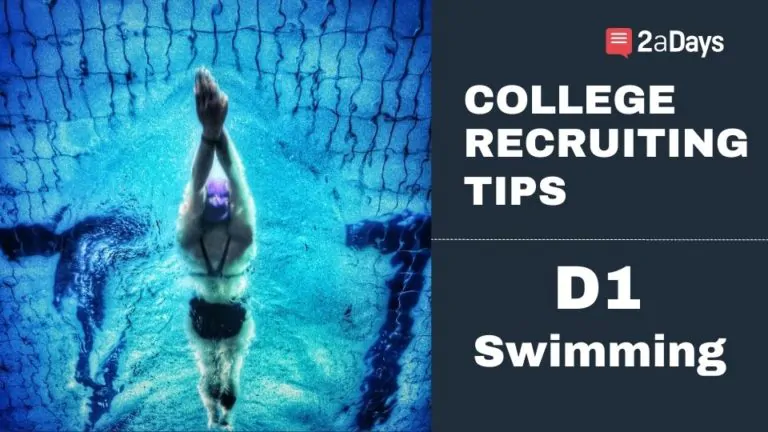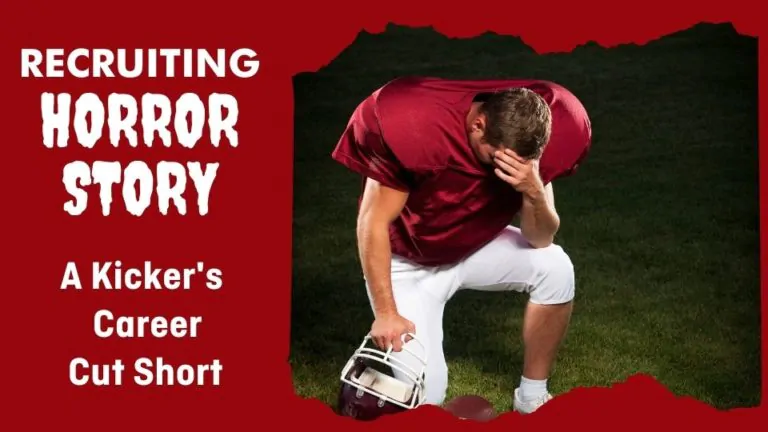When entering into the challenging and exciting world of college athletics, injuries can be a quick way to bring everything to a halt. Starting at a higher level and adapting to the changes can definitely be difficult for athletes who typically age from 18-25, and can be straining on the body and mind, which leaves them more susceptible to these dreaded injuries. That's why we spoke with KatieRose Healy, an assistant athletic trainer from Molloy University in New York who answered some questions regarding athlete health injury prevention, and preparation:
1. What is the number one injury in college athletics you see most often?
I wouldn't say there's one injury specifically that occurs often in all of college athletics. Injury trends are very sport specific, and can often even change from season to season. Sports such as track, tennis, bowling, you see a lot of overuse and chronic injuries due to their repetitive nature. Whereas sports such as lacrosse, soccer, football, you're seeing those more acute injuries, but again injuries aren't all specific to one sport or even year by year they change.
Related: Rate your Coaches, Facilities, and Campus Visits
2. What are some things you see athletes do that you would not recommend doing/would seek to correct?
I think the biggest learning curve in college athletics comes as a freshman where you do need to start taking care of your body, more than you did prior. The load and stress on the body from day to day over the course of a season is very different, so starting that right from the get go, while helping aid in recovery, and enduring a long season. I always try to prevent things with my athletes first by giving them the proper advice at the start of seasons.
3. What is the longest recovery time/process you have witnessed an athlete endure?
I have had athletes undergo ACL reconstruction, return to play and have a re-tear, causing them to have to undergo another surgery right after. This is looking at a 2-year recovery and has been my longest recovery and rehab process to date.
Related: 4 Muscle Recovery Tips for Hard-Working Athletes
4. What is one tip you would give for injury prevention?
Get in a routine, find what works best for you at the beginning of the season. Stretching and warming up on your own, before team stretch, if going in for treatment has been working, keep with it. Giving yourself enough time before practice to hydrate and nourish to endure a long practice as well. But find your routine early, and don't be afraid to ask your athletic trainer if you aren't sure on what you can be doing.
5. What is your best advice for an athlete in recovery who is lacking motivation?
It's best to set small goals rather than big long term goals. It helps the recovery process not become overwhelming. I always tell a lot of my athletes, keep your head where your feet are.
6. What are a few things athletes can do to prepare themselves for their first season at a college level?
Train over the summer, before your season. No matter what, your first college season will be a culture shock from your previous teams. If your coach gives you a workout packet, do it. You'll be far more prepared ahead of time.
Related: Sports Survival Guide: 16 Essentials Every College Athlete Should Have for Optimal Success
7. How important would you say keeping up with an athlete's mental health is and why?
Mental health practices have become so important the last few years with the general population as well as athletes. As athletic trainers we have such a close relationship with athletes, seeing them day to day, knowing how they are. My biggest thing is checking in with everyone, establishing relationships with each athlete regardless of playing time, injuries. Because you will be the first person they can go to if something is wrong, and letting your athletes know that you are a resource. Mental health is just as important as an athlete's physical health.
8. What makes your job most rewarding?
Seeing my athletes succeed on and off the field in college has been the greatest part of my job, and forming lasting relationships with them that go on after they graduate, being someone they can always come to for advice.
9. In terms of training, how can athletes avoid overworking their bodies?
Like I mentioned before, prevention is key. Knowing what works and doesn't work for you. Especially in season. Taking care of your body. Using those off days productively. What you put into rehab, treatment, taking care of yourself is what you will get out of it.
10. Why is it important to gain an athlete's trust as an athletic trainer and how do you build that trust?
As an athletic trainer, you're a face that the athletes see everyday. No matter if they are injured or not, you are at every practice in season, traveling with them for games. I have found that building that trust can [start with] a simple hello, and go from there. It becomes so important because at the end of the day, you are the one there for them in their hardest times whether it be a long term, or short term injury. Having someone they are comfortable working with makes all the difference in aiding in recovery, and being successful on and off the field.
No matter your sport, you will have a specific athletic trainer for your team who will help you with injuries, recovery, and more. It's important to hear from current college athletic trainers to get some insight on what they see from the outside looking in when it comes to athletes' lives and routines. The information KatieRose shared not only lets us see what she has experienced as a trainer, but also what many athletes have experienced with injury and lifestyle changes as well!
Image Credit: Molloy University Athletics
Have an idea for a story or a question you need answered? Want to set up an interview with us? Email us at [email protected]
* Originally published on October 26, 2022, by Sarah Borer







